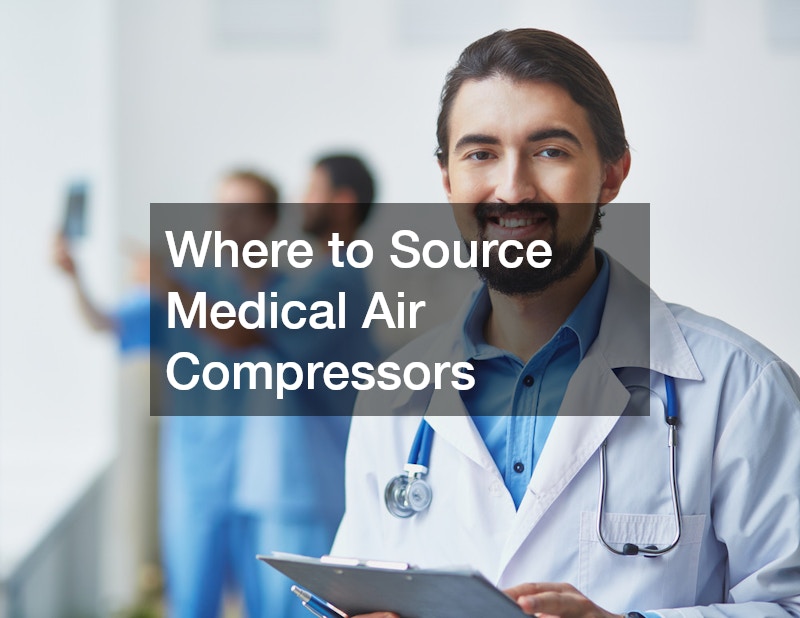The introduction sets the stage for understanding the necessity and applications of medical air compressors, highlighting their crucial role in healthcare settings. In modern healthcare facilities, these compressors are indispensable, providing purified air for surgical procedures, respiratory therapy, and instrument operation. Their reliability and performance are crucial, as any failure could result in dire consequences for patient care and equipment functionality.
What are the key considerations when sourcing medical air compressors?
Quality and Standards Compliance
Ensuring that medical air compressors meet stringent standards is paramount for both safety and performance. Regulatory bodies, such as the FDA and ISO, set guidelines that these devices must comply with to guarantee they are fit for use in healthcare environments. Compressors that adhere to these standards are less likely to fail, thereby reducing the risk of healthcare complications.
Reliability in medical settings cannot be overstated, as it directly impacts patient safety and effective treatment. Medical compressors are often used in life-support systems, where uninterrupted air supply is critical. Compliance with standards not only ensures reliability but also fosters trust in the technology among healthcare providers and patients.
Choosing compressors that meet quality and compliance benchmarks means investing in long-term operational success. Such an investment reflects on the institution’s commitment to maintaining high medical standards and engenders confidence in healthcare delivery. Reputable manufacturers often highlight compliance information, making it easier for purchasers to assess the suitability of their products.
Vendor Reliability and Support
The selection of a vendor for medical air compressors should be driven by their track record in delivering reliable products and after-sales support. An ideal vendor will offer robust customer service, ensuring quick resolution of any operational issues. Vendors who provide comprehensive training and technical assistance are highly desirable.
Engaging with a reliable vendor means having access to regular maintenance and prompt repairs, thereby minimizing downtime. This is particularly crucial in healthcare settings where equipment functionality is vital. A vendor that demonstrates an understanding of healthcare-specific challenges can be a valuable partner in managing compressor-related concerns.
Vendor reliability extends beyond immediate transactions, encompassing long-term relationships based on trust and mutual benefit. Vendors committed to continuous improvement and updates to their products will be better aligned with evolving healthcare technologies. The right vendor will ensure that your medical air compressors continually operate at peak efficiency.
Cost and Budgeting
While budgetary constraints are a common consideration in equipment procurement, compromising on cost should not translate to sacrificing quality. Potential buyers must evaluate cost-effectiveness over the life cycle of the compressor, rather than simply the initial acquisition cost. Factors such as energy efficiency, maintenance expenses, and user training should be included in the cost analysis.
Higher quality compressors often come at a premium but offer better reliability and longevity, reducing the need for frequent replacements. Opting for cost-effective solutions often means striking a balance between upfront costs and the long-term financial impact of maintenance. By weighing these factors, healthcare facilities can make informed decisions that align with both budgetary and operational goals.
Financial planning for medical air compressors should also account for potential future expansions and technology upgrades. This foresight ensures that equipment remains relevant and functional as healthcare demands evolve. A strategic approach to budgeting allows facilities to optimize their investment in compressors, balancing cost with performance and reliability.
Where can you find reputable suppliers for medical air compressors?
Industry-Specific Trade Shows and Conferences
Attending industry-specific trade shows and conferences provides a unique opportunity to interact directly with suppliers and evaluate their products. These events offer a platform for networking with industry leaders and gaining insights into the latest advancements in medical compressor technology. By attending, buyers can gather firsthand information, facilitating informed procurement decisions.
Trade shows often feature live demonstrations of products, allowing potential buyers to assess the compressors’ performance. This direct interaction helps in understanding the technological prowess and innovation behind each product. Moreover, such events enable attendees to compare multiple suppliers, fostering competitive evaluation.
The relationships formed at these gatherings can be invaluable, opening doors for collaborations and preferred pricing arrangements. Networking with experts and other institutions can provide referrals to reputable suppliers. Through these interactions, healthcare facilities can establish trust and rapport with potential suppliers.
Online Marketplaces and Directories
Online marketplaces and directories serve as convenient platforms to source medical air compressors. These platforms allow buyers to compare a wide range of products and vendors from the comfort of their offices. However, while they provide accessibility and choice, buyers must be cautious of vendor credibility and product authenticity.
Reputable online platforms often provide user reviews and ratings, which can help in assessing a supplier’s reliability. Buyers should prioritize platforms that perform rigorous checks on listed products and vendors to ensure conformity to medical standards. Engaging with customer support on these platforms can also offer insights into the buying process and post-purchase assistance.
The convenience of online sourcing is complemented by the ability to quickly request quotes and make comparisons. However, comprehensive due diligence must be exercised to avoid potential pitfalls such as substandard products or delayed deliveries. By navigating online marketplaces wisely, buyers can leverage the platform’s vast reach to source suitable compressors.
Referrals and Recommendations
Leveraging referrals and recommendations within the healthcare industry is a time-tested method to find reputable suppliers. Colleagues and industry peers often have firsthand experiences with suppliers, which can provide valuable insights. These personal endorsements can be a powerful tool in identifying reliable vendors.
Recommendations often come with an added layer of trust, as they are based on positive interactions and satisfactory product performance. Healthcare networks frequently share feedback on various suppliers, enabling informed decision-making. Engaging in discussions at professional forums can also yield valuable supplier information and insights into product efficacy.
Building a network of trusted contacts in the healthcare sector is beneficial not only for sourcing but also for ongoing support and information exchange. Institutions may also form alliances with each other for collective bargaining and improved terms with suppliers. Through effective networking, healthcare facilities can find dependable suppliers who meet their specific compressor needs.
.

